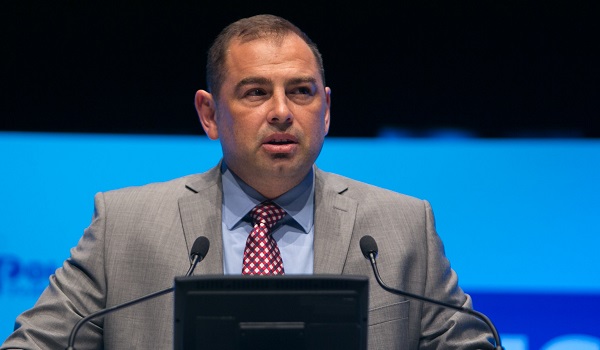Leavers' survey reveals 'significant impact' of police cuts
Almost 2,000 officers voluntarily quit the police service over the past 12 months due to low morale and salaries.
And two-thirds said they would never consider re-joining according to a new leavers survey by the Police Federation of England and Wales (PFEW).
PFEW vice-chair Che Donald said: “We clearly have a problem with the retention of police officers as the numbers leaving have risen for the fourth consecutive year.
“We have lost more than 21,300 officers since 2010 – that’s a drop of 15 per cent and the numbers keep going down every year. It’s like Groundhog Day.”
He said events such as the recent visit by US President Donald Trump make it harder for officers to spend time with their loved ones.
A report published by the PFEW on Wednesday (August 15) provides a summary of the survey’s findings in the six-month period between its launch on October 25, 2017, and April. It is open to any member who is leaving the police service within the next three months.
There were 598 respondents – 62 per cent were police constables, 23.1 per cent sergeants and 14.9 per cent inspecting ranks.
Outgoing officers were asked questions regarding how they had been treated at work, and the impact this had on their decision to leave.
More than a quarter (26.7 per cent) said the fairness of the rewards received for their work had a major effect on their decision, 23.9 per cent blamed the fairness of the policies and procedures at their force and 12.1 per cent said the support they receive from their line manager affected their decision.
This was highlighted by survey as more than half (52.5 per cent) said morale had a major effect on their decision to resign, while 43.8 per cent blamed the impact of the job on their family/personal life.
And 40 per cent of respondents said their decision to leave was a result of dwindling numbers at their force against an ever-increasing amount of demand.
In July, the Government confirmed officers would receive a two per cent pay rise in 2018/19, but this increase will effectively be halved as last year’s one per cent ‘bonus’ ended this month.
In real terms, officer pay has decreased by around 18 per cent since 2009/10, according to Mr Donald.
This has had a big impact on the police service, as the leavers’ survey figures revealed a “staggering” 69.4 per cent of respondents said they felt the police service had failed in its obligation to provide pay increases to maintain their standard of living.
Mr Donald said: “Our last Demand, Capacity and Welfare survey showed the extent that officers are being brought to their knees by the extreme workloads and the stresses and strains of the job.
“Resilience is at an all-time low with unprecedented cuts and officers being asked to do more with less resources, all of which is having a significant impact on both their mental health and physical wellbeing.
“Added to that recent figures also showed that officers were owed almost 250,000 rest days, so they are getting fatigued and no wonder they say they are not able to spend enough quality time with their children.
“Policing is also unique in that unlike the other emergency services, officers are liable to have their leave and rest days cancelled at extremely short notice to respond to operational demand, as happened recently in the Wilshire poisonings, and President Trump’s visit when thousands of police were mobilised away from their forces and homes.”
National lead for wellbeing Chief Constable Andy Rhodes added: “The Police Federation’s survey give us valuable insight into officers’ views. As always, chiefs will look carefully at these findings.
“Policing is by its nature a stressful job with sustained exposure to some of life’s most challenging situations. Increasing demand without increased investment in the past few years has put additional strain on officers. But at the same time policing is a hugely varied, interesting and rewarding career and the majority of those I speak to as they leave the service are proud of the contribution they have made.
“At national level we are working with police and crime commissioners and the Home Office to review our demand and resources for the next government spending review. Every police force is working to improve processes and use technology reducing bureaucracy and excessive workloads.
“Oscar Kilo, the first ever online wellbeing resource developed specifically for emergency services, helps forces identify what they do well and where they can improve officer welfare. We are working with the Police Federation and College of Policing to further improve the wellbeing support available to officers and expect to have proposals ready in December this year.”







